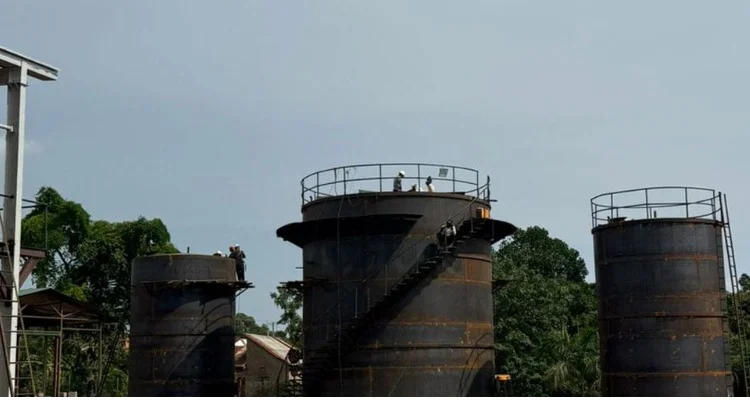Uganda’s Ethanol Blending Programme: A Triple Win for Farmers, Economy, and Environment

Uganda has officially launched a national biofuels blending programme that could transform the country’s energy landscape, breathe new life into rural agriculture, and significantly cut carbon emissions.
The initiative, which will begin with a 5% ethanol blend in petrol (E5) and scale up to 20% (E20), is poised to reduce the country’s dependence on fossil fuel imports while unlocking new markets for local farmers.
Implemented under the Biofuels Act (2020) and the Biofuels (Licensing) Regulations (2022), the Ministry of Energy and Mineral Development (MEMD) says the move could save Uganda more than Shs400 billion annually in foreign exchange by replacing up to 200 million litres of imported fuel with locally produced ethanol.
“This isn’t just about fuel,” said Hatimu Muyanja, an Energy Officer at MEMD. “It’s about transforming agriculture, protecting the environment, and reducing our dependence on costly petroleum imports.”
Uganda currently spends heavily on petroleum imports, making the transport sector a key driver of inflation and commodity price surges.
The shift to locally sourced ethanol is therefore not only an environmental imperative but an economic strategy aimed at cushioning Ugandans from external shocks in global oil markets.
The ethanol programme is already being hailed as a game changer for farmers in regions like Teso, Acholi, and Busoga, where cassava and sugarcane are widely grown.
Years of oversupply, low market demand, and price crashes have pushed many smallholder farmers into debt and disillusionment.
In mid-2025, for example, the farmgate price of cassava dropped to just Shs150 per kilogram for fresh produce and UGX 400 for dried—well below profitable margins.
Sugarcane growers in Busoga have similarly suffered from market gluts and miller disinterest.
The emergence of a stable, value-added ethanol market offers these farmers a new source of consistent income.
“With the new innovations, cassava and sugarcane will now have high market value,” said Isaac Omela, town clerk of Malaba Town Council.
“This will boost rural incomes and encourage farmers to utilise idle land productively.”
One of the programme’s key players is Bukona Agro Processors Ltd, which has signed a Public-Private Partnership agreement with Nwoya District to scale ethanol production.
Speaking at the signing in Malaba Town Council, Bukona’s Managing Director Praviin Kekal called the ethanol initiative “transformative both economically and environmentally.”
“In Uganda, charcoal remains the main cooking fuel used by the masses, contributing to the destruction of more than 90,000 hectares of forest every year. This project alone will conserve over 8,000 acres of forest annually, significantly reducing environmental degradation,” Kekal said.
Through partnerships with cooperatives and religious institutions like the Archdiocese of Gulu, Bukona is working with over 10,000 farmers to supply raw materials for ethanol.
“We are turning idle land into productive assets while putting money into the pockets of smallholder farmers,” he said.
To support the ethanol blending drive, four blending depots — in Busia, Malaba, Mutukula, and Kawuku (Entebbe) — have been established, with a combined capacity to handle over 110 million litres of fuel.
These depots will act as hubs for distribution, ensuring that ethanol-blended petrol reaches markets across the country.
The MEMD has committed to ensuring environmental safeguards and sustainability even as production ramps up.
“We are actively decarbonizing our transport sector and aligning Uganda with global climate goals,” said Muyanja.
He added that the ministry is prioritizing value addition, turning cassava and other crops into high-value biofuel instead of merely selling raw produce.
“It’s a win for rural families and Uganda’s economy as a whole.”
Recognizing that reliable supply of raw materials is key to the programme’s success, Energy Minister Ruth Nankabirwa recently called for increased investment in irrigation.
“We’ve had our ears on the ground for ten years. Now is the time to make farming more reliable, especially in the dry season,” she said at a briefing at the Uganda Media Centre.
Uganda’s ethanol blending initiative is more than just an energy policy—it is an ambitious, multi-sectoral economic reform.
It promises to cut fuel costs, energize rural economies, and help conserve Uganda’s fragile ecosystems.
In a country where over 70% of the population relies on agriculture for a livelihood, and where fuel prices significantly influence food costs, this programme stands to make a meaningful difference.
Every Ugandan — whether farmer, commuter, or policymaker — has a stake in its success.



0 Comments